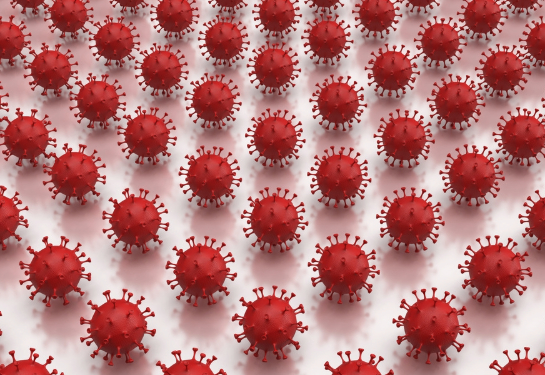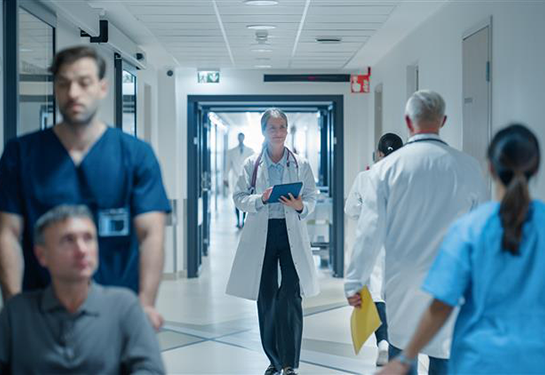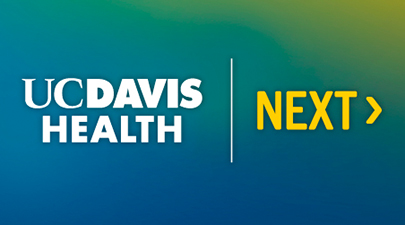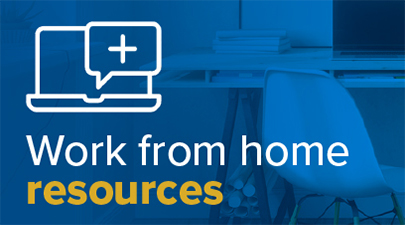Leadership Message: Disabilities impact all of us
October is National Disability Employment Awareness Month. Now is a great time to assess policies, procedures, processes, activities – and most importantly, our mindsets – and ask ourselves if we are helping (or excluding) faculty, students, staff or patients living with disabilities.
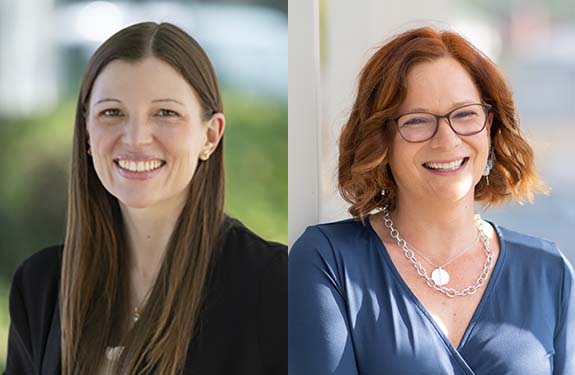
Carolyn Ramirez and Sarah Janus,
Co-Chairs of the DiversABILITY Employee Resource Group
Dear Colleagues,
We celebrate the 77th anniversary of National Disability Employment Awareness Month (NDEAM), recognizing the important role people with disabilities play in a diverse American workforce.
The Centers for Disease Control and Prevention (CDC) estimates that more than 60 million adults (approximately 26%) in the U.S. live with some type of disability.
Think about that statistic for a moment – one in four people!
This number, however, underestimates the actual population because not everyone reports having a disability, either due to lack of awareness or fear of stigma.
The term “disability” is significantly broader than most people realize. In fact, there are people who would fit within the definition, but don’t identify with the term. The CDC defines disability as: “any condition of the body or mind (impairment) that makes it more difficult for the person with the condition to do certain activities (activity limitation) and interact with the world around them (participation restrictions).”
‘But they don’t look like they have a disability’
There are thousands of diseases, disorders, illnesses, impairments, and conditions that are hidden or invisible, including dyslexia, multiple sclerosis, autism, hearing impaired, chronic fatigue syndrome, dystonia, attention deficit disorder, olfactory and gustatory impairment – to name a few.
Simply by looking at us, for instance, you would have no idea that we live with invisible disabilities – because we walk and talk like other seemingly able-bodied people (e.g., without using a crutch, cane, wheelchair or mobile device). But we do. Therefore, we feel strongly about educating and raising awareness about the strengths and challenges living with hidden disabilities brings.
In fact, on Oct. 14, there will be a discussion about how we can be better allies for people with disabilities. To RSVP for the DiversABILITY Lunch and Learn, click here.
Plus, on Oct. 18, the DiversABILITY employee resource group (ERG) will host a virtual event about the complex Family and Medical Leave Act process. Click here to RSVP.
If you live long enough, you will eventually have a disability
If we are fortunate to live a long life, sooner or later our eyesight will decline, our hearing will wane, our memory will fade, and our muscles and bones will weaken. Whether we like to accept it or not, disability impacts all of us. Click here to view the CDC infographic for more details.
So, if most of us will have a disability in our lifetime, what’s holding us back from creating a more inclusive and equitable world for all people?
Well, we firmly believe it has a lot to do with ableism.
What is ableism?
Accessliving.org defines ableism as: “The discrimination of and social prejudice against people with disabilities based on the belief that typical abilities are superior. At its heart, ableism is rooted in the assumption that disabled people require ‘fixing’ and defines people by their disability.”
Much like all the other horrendous and hurtful “isms” in society – such as racism, sexism, ageism, heterosexism/homophobia, elitism, etc. – ableism is a biased concept based in stereotypes, fear, and ignorance. It is a mindset, while often subconscious, which manifests in overt ways throughout society. Not using a microphone when speaking in a large room, for instance, is one way ableism shows up, because it’s based on the assumption that everyone can hear the human voice without any challenges. This, of course, is completely false.
All hope is not lost, however. There is a plethora of ways we can show up as allies and do better.
“When you know better, do better.” – Maya Angelou
There is a great deal to learn from people with disabilities. We are creative, hard-working, quirky and innovative individuals that have a lot to offer – if we’re only given the chance to shine!
Our hope is that anyone who oversees policies, procedures, programs, or activities makes it a priority to seek feedback and input from all people – especially those with disabilities – to see if these systems serve the greater UC Davis Health community.
If you don’t know where to start, reach out to the DiversABILITY ERG! We focus on creating a sense of inclusion and belonging for all people, especially those with disabilities, and provide educational information and resources available to us within the health system and out in the community.
We must be an ally for all people, not just some people.
What will you do this October?
Sincerely,
Carolyn Ramirez and Sarah Janus
Co-Chairs of the DiversABILITY Employee Resource Group

